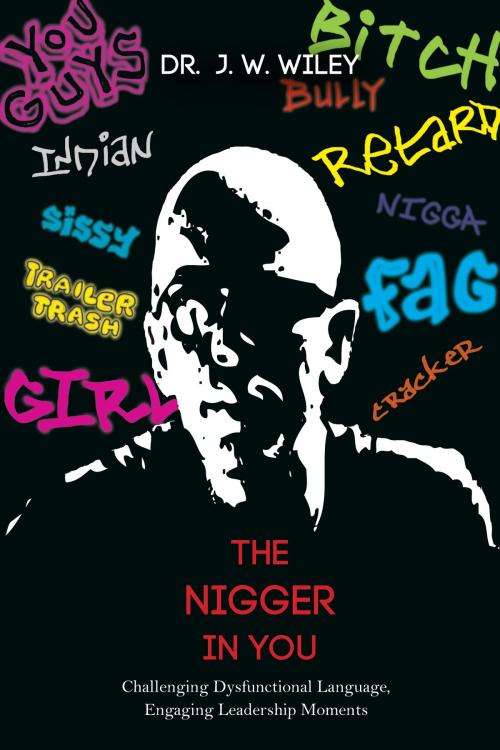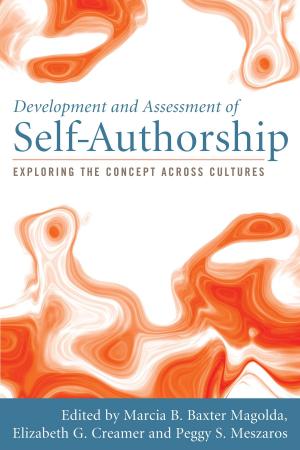The Nigger in You
Challenging Dysfunctional Language, Engaging Leadership Moments
Nonfiction, Reference & Language, Education & Teaching, Higher Education, Social & Cultural Studies, Social Science, Discrimination & Race Relations| Author: | J. W. Wiley | ISBN: | 9781579229887 |
| Publisher: | Stylus Publishing | Publication: | September 17, 2013 |
| Imprint: | Stylus Publishing | Language: | English |
| Author: | J. W. Wiley |
| ISBN: | 9781579229887 |
| Publisher: | Stylus Publishing |
| Publication: | September 17, 2013 |
| Imprint: | Stylus Publishing |
| Language: | English |
Embrace Leadership to Combat All Forms of Prejudice
“Is there a ‘nigger’ in you?” If you have attempted to avoid and/or escape oppression, been made to feel as if you are a problem, been treated as “lesser than” or even like a criminal, all just because you are different in a given context, then what Dr. J. W. Wiley asserts through the title of this book inescapably applies to you. Through any of our multiple identities—stereotyped, marginalized, or ostracized by our socio-economic class, level of education, gender, disability, age, race, sexual orientation, or religion—we are all potential victims as well as perpetrators of denigrating language and discrimination.
Dr. Wiley borrows the agency of nigger, arguably the quintessential, most universally known term of disparagement of those negatively considered the Other, to re-frame the word as no longer just a racial term but one that symbolizes many of the ways we disrespect or bully one another, are inconsiderate of one another, prejudge one another, and internalize our demonization. He defines the word in a way that demonstrates its equivalence to other dysfunctional language (retard, bitch, fag, trailer trash, etc.) that suggests that those so targeted are unworthy of consideration in our society. By creating a conversation around such language, Dr. Wiley challenges us to recognize that, when we give in to our prejudices and stereotypes, the “nigger in you” is what we are apt to see when we encounter those different from ourselves.
Dr. Wiley provokes us to recognize that, since every one of us has multiple identities beyond just the color of our skin, it is virtually impossible for most of us not to have felt the sting of oppression, or the power of privilege that some of those same multiple identities may confer on us. Consequently, it is morally incumbent on us to contest and ultimately transcend oppression wherever we encounter it, to respect the humanity of those different from us, and become allies in the war to protect and advance people’s right to be different.
“Is there a ‘nigger’ in you?” If you have attempted to avoid and/or escape oppression, been made to feel as if you are a problem, been treated as “lesser than” or even like a criminal, all just because you are different in a given context, then what Dr. J. W. Wiley asserts through the title of this book inescapably applies to you. Through any of our multiple identities—stereotyped, marginalized, or ostracized by our socio-economic class, level of education, gender, disability, age, race, sexual orientation, or religion—we are all potential victims as well as perpetrators of denigrating language and discrimination.
Dr. Wiley borrows the agency of nigger, arguably the quintessential, most universally known term of disparagement of those negatively considered the Other, to re-frame the word as no longer just a racial term but one that symbolizes many of the ways we disrespect or bully one another, are inconsiderate of one another, prejudge one another, and internalize our demonization. He defines the word in a way that demonstrates its equivalence to other dysfunctional language (retard, bitch, fag, trailer trash, etc.) that suggests that those so targeted are unworthy of consideration in our society. By creating a conversation around such language, Dr. Wiley challenges us to recognize that, when we give in to our prejudices and stereotypes, the “nigger in you” is what we are apt to see when we encounter those different from ourselves.
Dr. Wiley provokes us to recognize that, since every one of us has multiple identities beyond just the color of our skin, it is virtually impossible for most of us not to have felt the sting of oppression, or the power of privilege that some of those same multiple identities may confer on us. Consequently, it is morally incumbent on us to contest and ultimately transcend oppression wherever we encounter it, to respect the humanity of those different from us, and become allies in the war to protect and advance people’s right to be different.
Embrace Leadership to Combat All Forms of Prejudice
“Is there a ‘nigger’ in you?” If you have attempted to avoid and/or escape oppression, been made to feel as if you are a problem, been treated as “lesser than” or even like a criminal, all just because you are different in a given context, then what Dr. J. W. Wiley asserts through the title of this book inescapably applies to you. Through any of our multiple identities—stereotyped, marginalized, or ostracized by our socio-economic class, level of education, gender, disability, age, race, sexual orientation, or religion—we are all potential victims as well as perpetrators of denigrating language and discrimination.
Dr. Wiley borrows the agency of nigger, arguably the quintessential, most universally known term of disparagement of those negatively considered the Other, to re-frame the word as no longer just a racial term but one that symbolizes many of the ways we disrespect or bully one another, are inconsiderate of one another, prejudge one another, and internalize our demonization. He defines the word in a way that demonstrates its equivalence to other dysfunctional language (retard, bitch, fag, trailer trash, etc.) that suggests that those so targeted are unworthy of consideration in our society. By creating a conversation around such language, Dr. Wiley challenges us to recognize that, when we give in to our prejudices and stereotypes, the “nigger in you” is what we are apt to see when we encounter those different from ourselves.
Dr. Wiley provokes us to recognize that, since every one of us has multiple identities beyond just the color of our skin, it is virtually impossible for most of us not to have felt the sting of oppression, or the power of privilege that some of those same multiple identities may confer on us. Consequently, it is morally incumbent on us to contest and ultimately transcend oppression wherever we encounter it, to respect the humanity of those different from us, and become allies in the war to protect and advance people’s right to be different.
“Is there a ‘nigger’ in you?” If you have attempted to avoid and/or escape oppression, been made to feel as if you are a problem, been treated as “lesser than” or even like a criminal, all just because you are different in a given context, then what Dr. J. W. Wiley asserts through the title of this book inescapably applies to you. Through any of our multiple identities—stereotyped, marginalized, or ostracized by our socio-economic class, level of education, gender, disability, age, race, sexual orientation, or religion—we are all potential victims as well as perpetrators of denigrating language and discrimination.
Dr. Wiley borrows the agency of nigger, arguably the quintessential, most universally known term of disparagement of those negatively considered the Other, to re-frame the word as no longer just a racial term but one that symbolizes many of the ways we disrespect or bully one another, are inconsiderate of one another, prejudge one another, and internalize our demonization. He defines the word in a way that demonstrates its equivalence to other dysfunctional language (retard, bitch, fag, trailer trash, etc.) that suggests that those so targeted are unworthy of consideration in our society. By creating a conversation around such language, Dr. Wiley challenges us to recognize that, when we give in to our prejudices and stereotypes, the “nigger in you” is what we are apt to see when we encounter those different from ourselves.
Dr. Wiley provokes us to recognize that, since every one of us has multiple identities beyond just the color of our skin, it is virtually impossible for most of us not to have felt the sting of oppression, or the power of privilege that some of those same multiple identities may confer on us. Consequently, it is morally incumbent on us to contest and ultimately transcend oppression wherever we encounter it, to respect the humanity of those different from us, and become allies in the war to protect and advance people’s right to be different.















